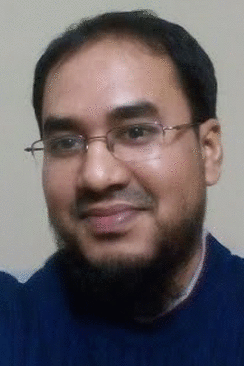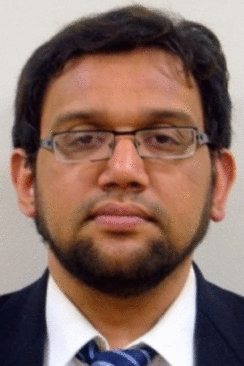The vastness of applications of computers and computing devices
The number of computer applications has increased significantly within the past two decades. Today, both computers and computing devices are used in a vast range of applications. While by the term ‘Computer,’ we usually mean a particular type of advanced electronic device that takes raw data as input from the user and processes these data with a set of instructions (called a program) to produce results (outputs), there are various types of other computing devices that could also process raw data to some extent. Alongside different types of computers like desktop, laptop, notebook, palmtop, PDA (Personal Digital Assistant), there are many types of computing devices like smartphone, ATM (Automated Teller Machine) machine, CD (Compact Disk) player, digital alarm clock, microwave oven, etc. The latter types of electronic devices contain embedded and specialized computers (though relatively low-resource often) which allow the devices to perform specialized computing operations.
Given this general understanding of computers and computing devices, when the applications of computers are to be considered for this journal, we would need to take into consideration all related issues from hardware to software. In addition, various applications in other fields could also be linked (though loosely) with computers. For instance, a chemist could use computer today to do experiments, a physicist could perform physics experiments with the aid of computer and its applications; likewise electronics, biology, economics, business, and almost any field may be made related to computers and its applications. In reality, it would be quite impossible to allow all the research papers that just somehow relate the applications with computers. Hence, as a practical approach of reducing unwanted paper submissions, the most recent aims and scope of the journal has been set within the boundaries of mainly Computer Science, Computer Engineering, and Information and Communications Technology (ICT). Again, hardware-related papers would not be considered anymore as those would better suit in any other venue related to circuits and systems or electronics or so.
It is indeed our great pleasure to see that our journal (International Journal of Computers and Applications (IJCA)) is getting its Volume 40. This proves the confidence and trust that the authors have put on this journal and its standard. We sincerely thank the previous Editor-in-Chief, Professor Wanlei Zhou who has left the journal in good standing. With a reorganized team of active editors, we would like to make this journal even better and stronger. Hence, after assuming the roles as the Editor-in-Chief and Deputy Editor-in-Chief, our emphasis is mainly on the quality of papers, not the quantity. It is mentionable here that the journal’s supply side is quite strong and it gets paper submissions from all over the globe on a continuous basis. Moreover, many other renowned people in the relevant fields do contact with us regularly for organizing special issues with specific themes.
Currently, IJCA considers the following types of papers:
(a) Type I: Papers for which all results could be easily reproducible. For this particular type, source codes should be provided mentioning that the results are reproducible or the codes could be re-run under given settings.
(b) Type II: Papers with negative results. This type is quite interesting as a failure report could also be beneficial for the research community to know that approaching a problem in that way would not be successful. For such papers, the experimental setting and negative results must be presented in detail.
(c) Type III: Detailed report, case study and literature review articles about innovative software, new technology, high impact computer applications, and future development with sufficient background and subject coverage.
(d) Type IV: Special issue papers focusing on a particular theme with significant importance or extended and revised versions of selected papers from a relevant conference.
While ensuring quality of the papers of different types is now a priority, we are also looking for ways to get the journal indexed in Web of Science database. To get a better diversity of the associate editors (considering the geographical distribution), in the coming days, we may include some more qualified people whose contributions could increase the processing speed of the journal. As we expect, from submission to final notification, a paper should not take more than 6 months (i.e. the review process should be completed within this time period). In fact, as being the authors for other venues, we understand the needs of the authors who often have specific timeline for their works and often the publication or notification is related to their career plans, degree achievement, promotion, research funding, project, or so on. We hope that with our newly organized team and policies, the journal would maintain its high standard of publications while the review time could be reduced significantly for the benefits of the authors and readers.
Notes on contributors
 Al-Sakib Khan Pathan received PhD in Computer Engineering from Kyung Hee University, South Korea and BSc in Computer Science and Information Technology from Islamic University of Technology (IUT), Bangladesh. He has several notable publications in the areas of networking, security, cloud, wireless technologies, and some multidisciplinary issues, some of which earned him awards and recognitions. He is currently an associate professor of CSE department at Southeast University, Bangladesh. He is serving as the Editor-in-Chief/Editor/Guest Editor of several renowned journals as well as a chair and committee member in some prestigious conferences. He is a senior member of IEEE. Email: [email protected]
Al-Sakib Khan Pathan received PhD in Computer Engineering from Kyung Hee University, South Korea and BSc in Computer Science and Information Technology from Islamic University of Technology (IUT), Bangladesh. He has several notable publications in the areas of networking, security, cloud, wireless technologies, and some multidisciplinary issues, some of which earned him awards and recognitions. He is currently an associate professor of CSE department at Southeast University, Bangladesh. He is serving as the Editor-in-Chief/Editor/Guest Editor of several renowned journals as well as a chair and committee member in some prestigious conferences. He is a senior member of IEEE. Email: [email protected]
 Zubair Md Fadlullah is serving as an associate professor at the Graduate School of Information Sciences, Tohoku University. His research interests are in the areas of 5G, deep learning, smart grid, network security, intrusion detection, game theory, and quality of security service provisioning mechanism. He received the Dean’s award and the President’s award from Tohoku University in 2011, IEEE Asia Pacific Outstanding Researcher Award in 2015, NEC foundation prize for research contributions in 2016, and several best paper awards in ICC, Globecom and IWCMC conferences. He is also an editor of several prestigious journals and transactions. Email: [email protected]
Zubair Md Fadlullah is serving as an associate professor at the Graduate School of Information Sciences, Tohoku University. His research interests are in the areas of 5G, deep learning, smart grid, network security, intrusion detection, game theory, and quality of security service provisioning mechanism. He received the Dean’s award and the President’s award from Tohoku University in 2011, IEEE Asia Pacific Outstanding Researcher Award in 2015, NEC foundation prize for research contributions in 2016, and several best paper awards in ICC, Globecom and IWCMC conferences. He is also an editor of several prestigious journals and transactions. Email: [email protected]
Editor-in-Chief
http://orcid.org/0000-0001-6572-3451
Zubair Md. Fadlullah
Co-Editor-in-Chief
